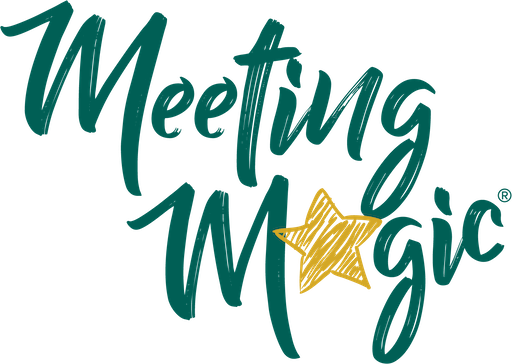I work for all kinds of large organisations. They are all fascinatingly different — that’s why l love my job! And yet, I’ve not yet met an organisation that’s got it cracked when it comes to harnessing the power of people working together in a consistent and scalable way.
I see impressive facilities and infrastructure, talented people, great brands with global coverage and yet, when people come together to work, the result so often becomes the lowest common denominator — or ‘he who shouts loudest wins’. In most organisations people talk about ‘the business’ without seeming to make the connection that the business is all about human beings working together. And the most common forum for people to work together is in meetings.
I’ve heard a lot of talk, in recent months, about the need for ‘culture change’ in organisations. I’m hopeful that it might indicate a shift towards organisations considering more than just the tangible and logical aspects of business. Nevertheless, culture is a big amorphous thing and it’s hard to get your hands on it or your arms around it.
How do you tackle culture with any impact?
I believe that by focusing on meetings we can affect culture in a practical, meaningful way that affects people’s everyday work in business.
The way we work in meetings, the way people collaborate, the way decisions are made, the way people are treated — all give people an everyday experience that is their practical experience of the organisation’s culture.
The way we work in meetings, the way people collaborate, the way decisions are made, the way people are treated — all give people an everyday experience that is their practical experience of the organisation’s culture. Therefore, if we want to bring about culture change, a very tangible way to do this is through changing the way people meet. If we can change meeting culture we can change organisational culture.
For example, in an organisation that has a very collaborative culture, decision-making can go round and round in circles, involving everyone in everything. It can feel like wading through treacle trying to get anything done. By introducing some new ways of making decisions in meetings, this cycle of over-collaboration can be changed. Robust decisions can be made in a more timely manner.
Diagnosing the situation
The connection between culture and meetings works two ways.
Not only can meetings be used to affect culture, they can be used to diagnose culture.
Not only can meetings be used to affect culture, they can be used to diagnose culture.
Most business people complain of too many meetings or meetings being a waste of time. These are just the symptoms not the cause. When we dive deeper under the surface of what goes on in meetings we can see the systemic patterns of behaviour that help or hinder an organisation. Once these patterns are identified they can be amplified or altered to drive a change in culture.
For example, an organisation needs more collaboration between divisions so that they can sell more to their existing clients. Despite putting in a function to manage collaboration between the divisions, the collaboration is not happening: it’s like pulling teeth. When we look at the meetings in this organisation we see that there are few cross-division meetings in the development phase of ideas. The meetings happen when each division has developed their ideas and need ‘sign off’ from others. This can create a competitive scenario.
By fostering a new style of collaborative meeting between divisions, in the early phases of concept development, we integrate thinking early in the process, so that by the time the ideas are formed, they are already joined up. By working in a collaborative way in these meetings, the understanding between divisions improves as do the relationships between individuals in the divisions, and a shift in culture is achieved because they have experienced a non-competitive style of working.
We diagnose meetings
Meeting Magic has worked with university researchers to develop an approach to diagnosing and changing culture through meetings. We know this approach to change is refreshingly pragmatic. Unlike some approaches, we utilise the work that is already going on in a business to affect change, rather than creating new streams of work. We don’t layer theory over the organisation attempting to teach change. We work with you to embed culture change through something that happens every day… meetings.
We have options for how we diagnose meeting culture that are all engaging in ways that create a clear understanding of what challenges need attention. We are always happy to discuss the options to determine what works best for you.
If you would like to know more about how to change organisational culture through meetings, then contact us for our detailed article on this subject by calling us at +44 (0)1628 471 114, by emailing us, or through our contact form to learn more about meeting facilitation as driver of culture change
